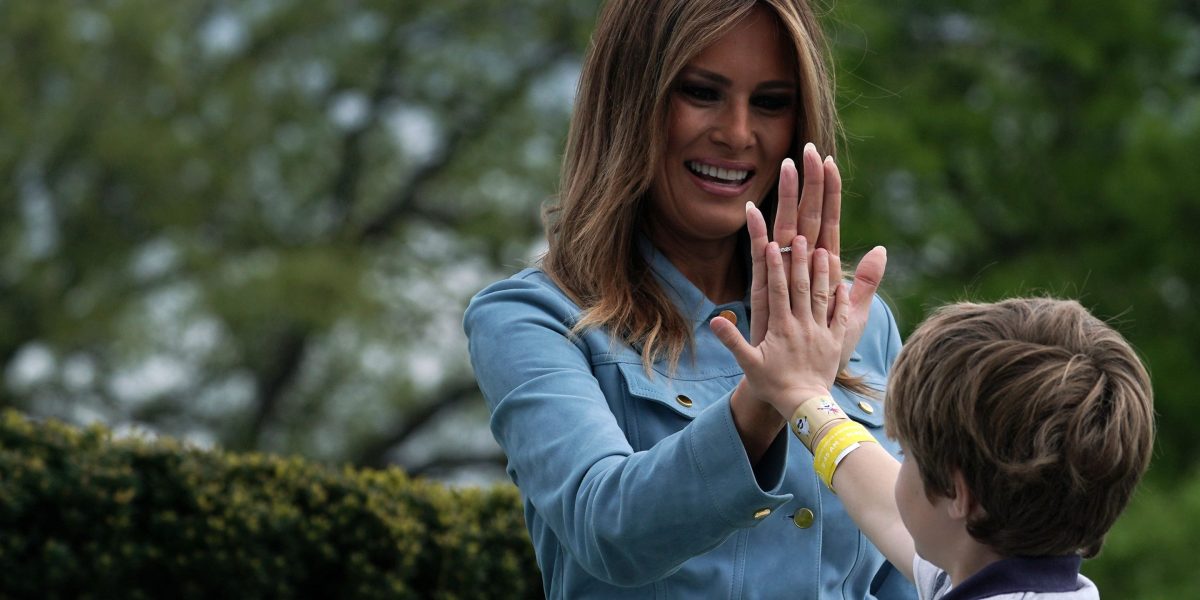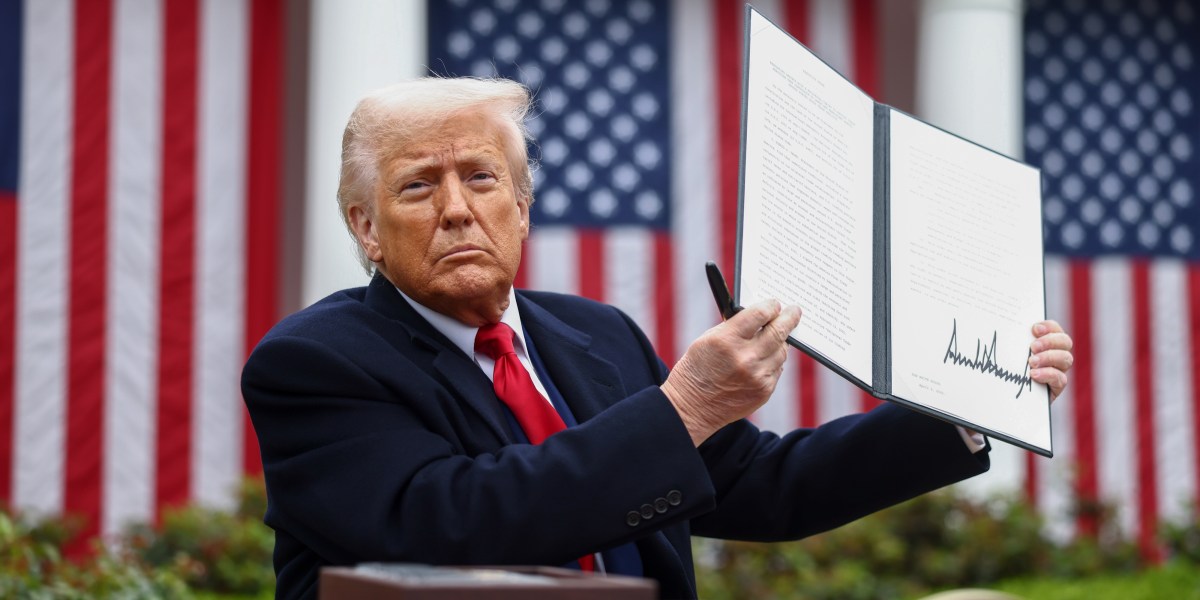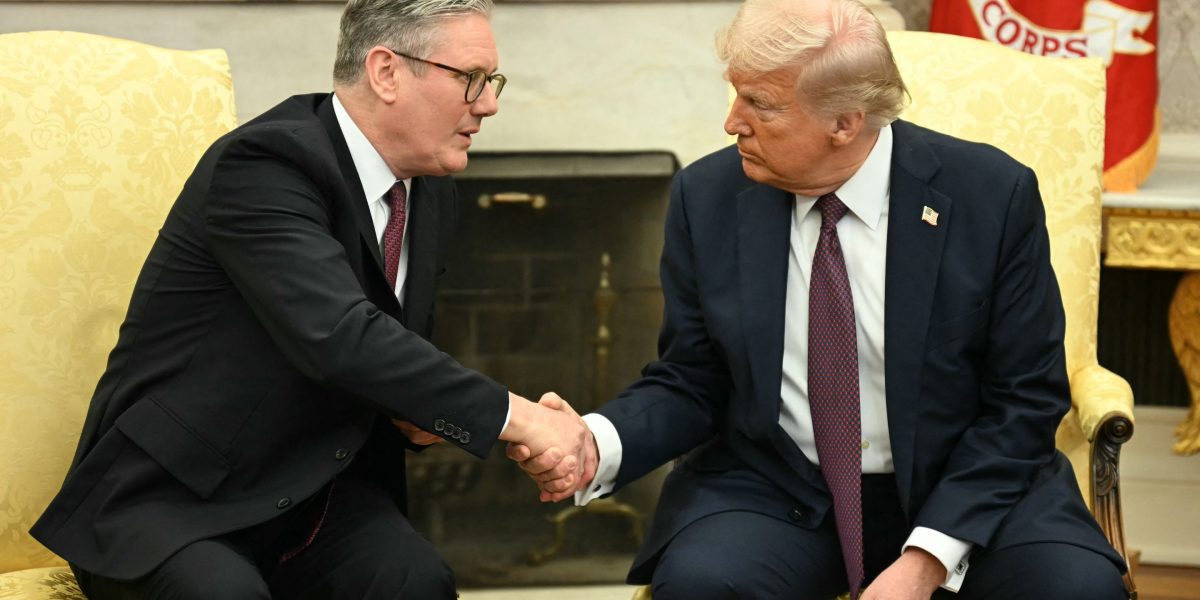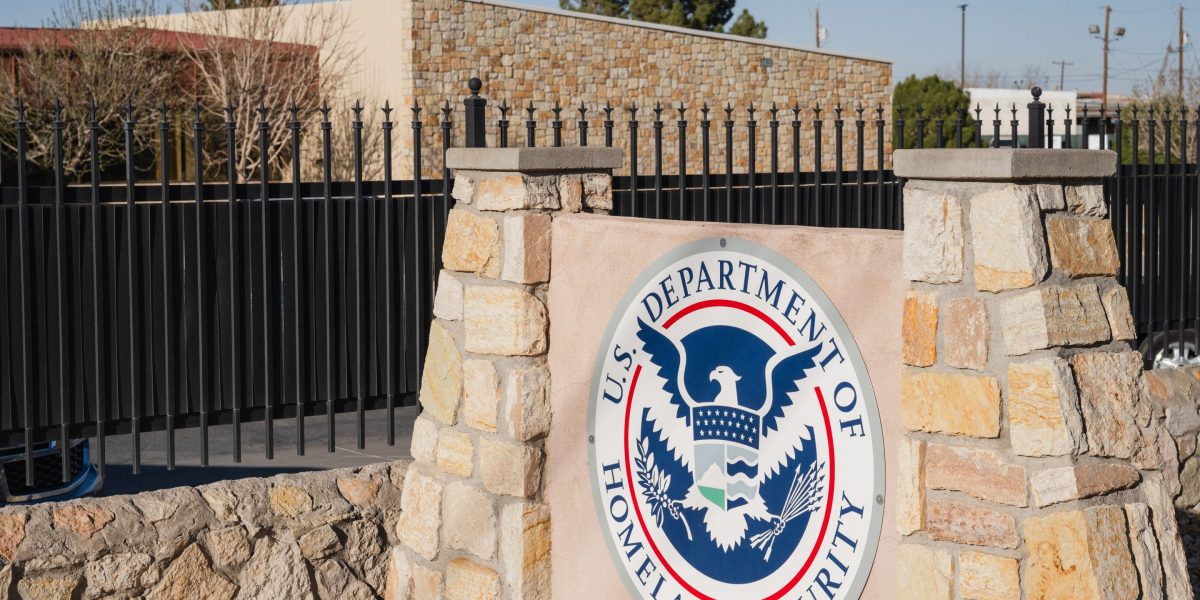- A pitch deck for the White House Easter Egg roll, an annual event that sees thousands of children and their parents descend on the White House lawn, is offering plentiful branding opportunities, event tickets, and a White House tour for companies that donate tens or hundreds of thousands of dollars in a move that critics call “absurdly corrupt.”
The annual White House Easter Egg Roll is seeking corporate sponsors—and the companies that respond will get the chance to advertise during the event and attend a private White House tour.
The platinum-level sponsor who donates $200,000 will also get four tickets to a brunch hosted by Melania Trump, a 900-square foot booth onsite, branded snacks or souvenirs, naming rights for specific areas of the event, a callout in the program brochure or social media posts, and a chance to “engage with White House Press Corps on [the] South Lawn,” according to a pitch deck first obtained by The New York Times.
“By partnering with this historic tradition, sponsors can engage with diverse audiences, showcase their commitment to community and education, and align with a beloved American event,” reads the deck, titled “Sponsorship opportunities.” In addition to the $200,000 platinum sponsorship, the brochure also offers a $125,000 gold-level package and a $75,000 silver tier.
The pitch document was created by Harbinger, an event company founded in 2013 that has also produced the 2021 March for Our Lives and a media day for Uber’s self-driving technology, according to its website.
Coming on the heels of a Tesla showcase on the South Lawn, the solicitation document is raising furor from critics who say it runs afoul of longstanding ethics rules.
“It’s absurdly corrupt,” Sen. Elizabeth Warren (D-Mass.) said on X.
“Of course the White House Easter Bunny drives a Tesla. Can’t wait to see the photo!” Richard Painter, a law professor who was a White House ethics lawyer under George W. Bush, posted on X.
Painter said showcasing company brands in exchange for money is a classic case of “use of public office for private gain,” which ethics rules forbid.
“That would have been vetoed in about 30 seconds in my day,” Painter told CNN. “We’re not running this like a football stadium where you get all logos all over the place for kicking in money.”
The White House Egg Roll is hosted by the White House Historical Association, a private nonprofit, in conjunction with the National Park Service, which raffles off free tickets for families. (This year’s lottery winners were announced March 18.) No taxpayer funds are used for the event, which started in the 19th century; any money raised in excess of putting on the egg roll will go to the Historical Association.
The White House press office deferred comment to the White House Historical Association, which did not respond to a request for comment from Fortune.
The event has typically enjoyed private sponsorship, including from the American Egg Board, which donates thousands of eggs and some cash to the event.
“America’s egg farmers are proud to partner with the White House and the White House Historical Association on this year’s White House Easter Egg Roll, continuing a nearly 50-year legacy of supporting this time-honored annual tradition,” the Egg Board said in a statement.
This story was originally featured on Fortune.com
Source link


 Entertainment8 years ago
Entertainment8 years ago
 Politics8 years ago
Politics8 years ago
 Entertainment8 years ago
Entertainment8 years ago
 Entertainment8 years ago
Entertainment8 years ago
 Tech8 years ago
Tech8 years ago
 Tech8 years ago
Tech8 years ago
 Tech8 years ago
Tech8 years ago
 Politics8 years ago
Politics8 years ago






